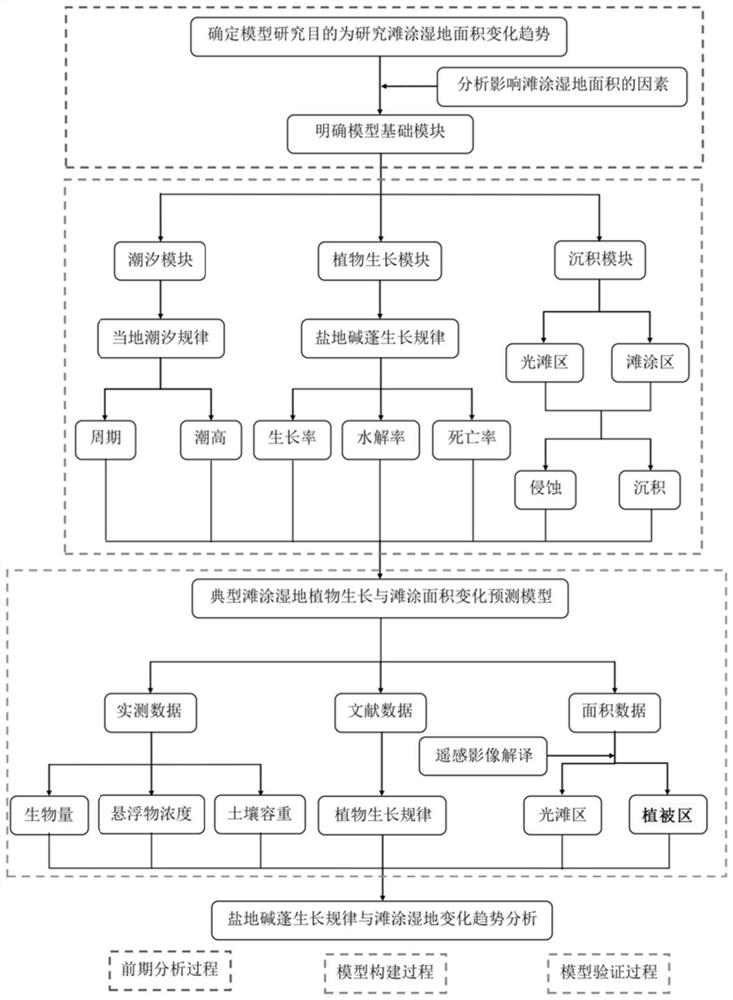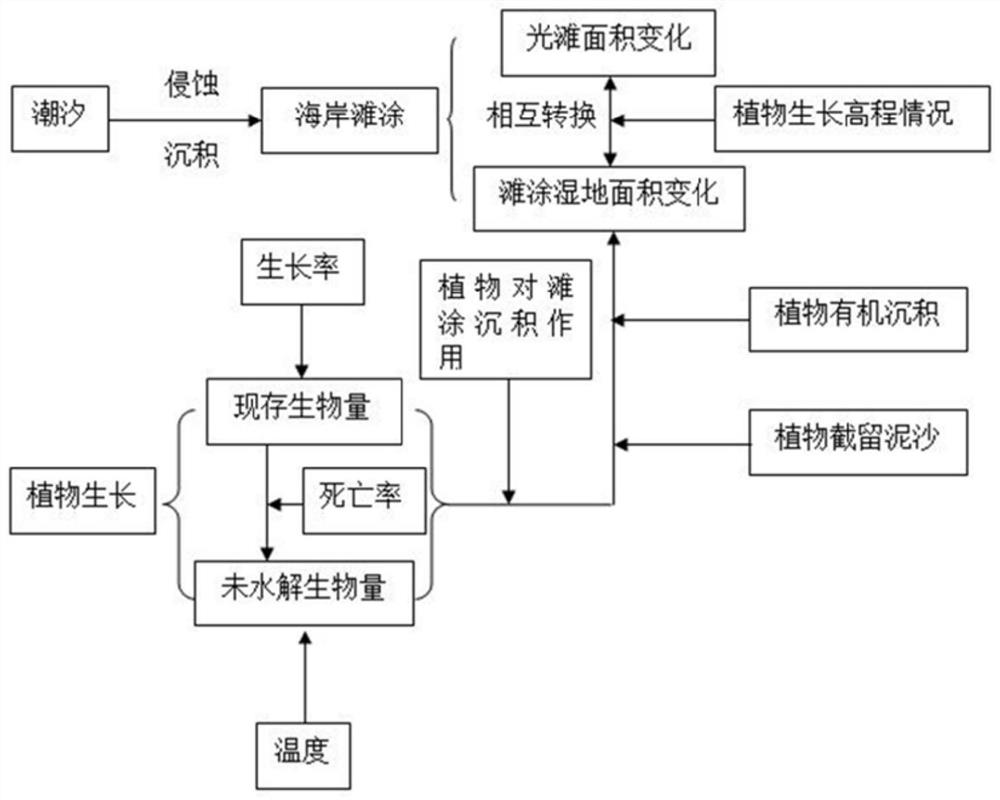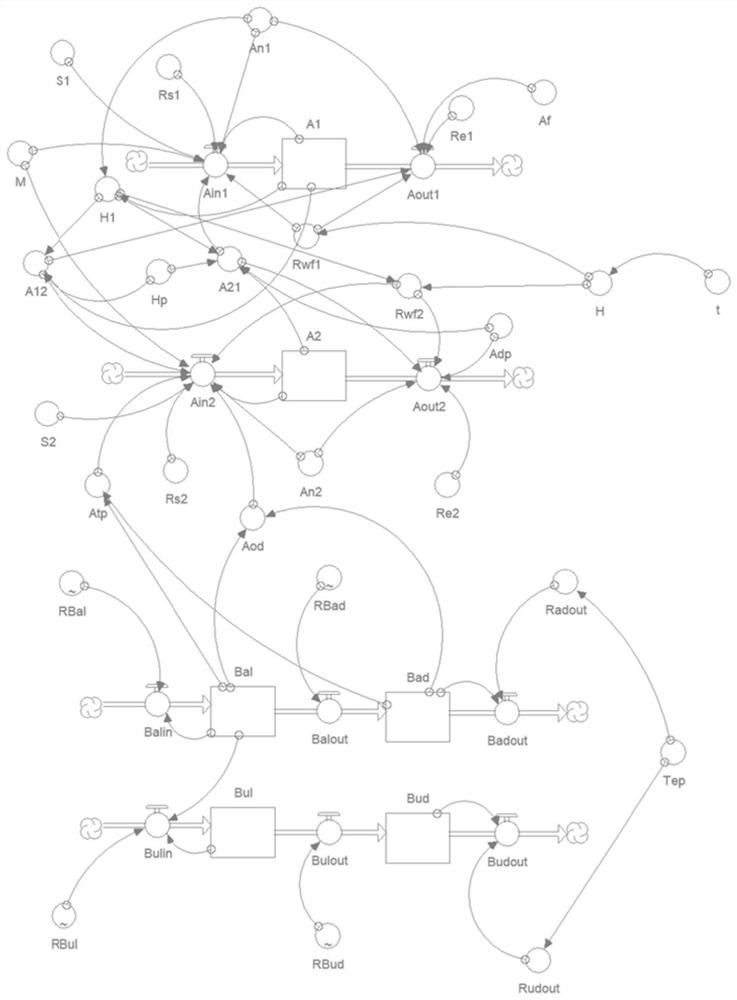Methods based on the changing model of the tide zone area to predict the development trend of the future tide zone area
A technology of area change and model prediction, applied in prediction, design optimization/simulation, data processing application, etc., can solve the problems of taking into account the depositional erosion process of tidal flat wetlands and ignoring the impact of tidal flat vegetation
- Summary
- Abstract
- Description
- Claims
- Application Information
AI Technical Summary
Problems solved by technology
Method used
Image
Examples
Embodiment Construction
[0080] The present invention will be further described below in conjunction with specific embodiments.
[0081] The present invention consists of three parts, such as figure 1 Shown: tidal model, plant growth model, and sedimentation model.
[0082] like figure 2 As shown, the tidal model mainly simulates the periodic tidal inundation of the intertidal zone. The plant growth model mainly simulates the annual changes in biomass and litter quality of typical annual vegetation in the intertidal zone and its impact on intertidal deposition. The sedimentary model simulates the intertidal wetland deposition and erosion dynamics process under the influence of tides and vegetation, and outputs area change data.
[0083] A method for predicting the future development trend of the intertidal zone area based on the intertidal zone area change model, the steps are as follows:
[0084] (1) Field investigation to confirm the main vegetation types in the intertidal zone, sampling to det...
PUM
 Login to View More
Login to View More Abstract
Description
Claims
Application Information
 Login to View More
Login to View More - Generate Ideas
- Intellectual Property
- Life Sciences
- Materials
- Tech Scout
- Unparalleled Data Quality
- Higher Quality Content
- 60% Fewer Hallucinations
Browse by: Latest US Patents, China's latest patents, Technical Efficacy Thesaurus, Application Domain, Technology Topic, Popular Technical Reports.
© 2025 PatSnap. All rights reserved.Legal|Privacy policy|Modern Slavery Act Transparency Statement|Sitemap|About US| Contact US: help@patsnap.com



